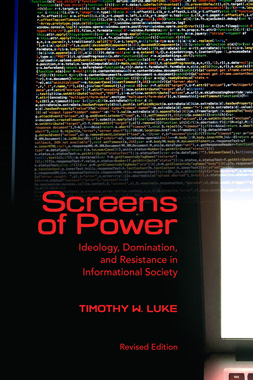By Telos Press · Friday, September 24, 2021 Today’s episode of the Telos Press Podcast features our recent panel discussion on the causes and consequences of the U.S. failure in Afghanistan. With presentations from Telos editors Mark Kelly, Adrian Pabst, Marcia Pally, David Pan, and David Westbrook, the discussion covered various aspects of the U.S. withdrawal from Afghanistan as well as its implications for the future of the region, the promotion of liberal democracy and human rights, and the influence of the United States and the West more generally. We were also delighted to be joined by our listeners from around the globe, who posed thoughtful and provocative questions to the panel following the presentations.
The discussion picked up on a number of arguments addressed at greater length in the “Forum on Afghanistan” featured in Telos 196 (Fall 2021), our new issue, which is now available in the Telos Press store. Links to the individual articles are also provided here. If your university has an online subscription to Telos, you can read the articles at the Telos Online website. For non-subscribers, learn how your university can begin a subscription to Telos at our library recommendation page.
Listen to the podcast here.
Continue reading →
By Russell A. Berman · Thursday, August 12, 2021 Renaud Girard is an American-born French journalist, the author of several books on world affairs, especially the Middle East. In this trenchant commentary on the Afghan debacle, he recognizes the defeat for what it is, bluntly invoking the collapse of the imperial German army at the end of the First World War. Is that an overstatement or an unflinching naming of the collapse of an order? Girard brings a realist eye to the factors that have contributed to the current situation, asking us to understand them and their consequences, as the Taliban proceed from city to city, heading toward Kabul.
Continue reading →
By Renaud Girard · Thursday, August 12, 2021 The following essay was published in Le Figaro on August 9, 2021, and appears here in translation with the permission of the author. Translated by Russell A. Berman, with comments here.
On Sunday, August 8, 2021, the Afghan Taliban took three provincial capitals, including Kunduz, the large city in the north of Afghanistan, close to the frontier with Tajikistan on the road that leads from Kabul to Dushanbe. Kunduz was previously the general quarter of the German forces intervening within the NATO framework. [First Quartermaster General Erich] Ludendorff once called August 8, 1918, a “day of mourning for the German army.” August 8, 2021, will certainly remain a “day of mourning” for the Afghan army that the Americans have been training and equipping for twenty years. As panic feeds panic, and debacle leads to debacle, one cannot see how the Afghan army will be able to prevent the imminent fall of Kandahar, Mezar, Herat, and Jalalabad, before facing definitive defeat at Kabul.
Continue reading →
By Telos Press · Wednesday, June 23, 2021 Writing in the current issue of New Political Science, Saladdin Ahmed reviews Timothy W. Luke’s Screens of Power: Ideology, Domination, and Resistance in Informational Society, recently published in a new edition by Telos Press. Purchase your copy of Screens of Power today in our online store and save 25% off the list price.
An excerpt of the review:
 Screens of Power first came out in 1989, a time that would turn out to be the most significant historical turn in global politics after World War II. The book’s author, Timothy W. Luke, offers a concrete account of the history of neoconservatism, grounding his claims in critical analyses of the production of signs, codes, and mass opinion that were at the time making evident their systematic role in the perpetuation of what would emerge as capitalist absolutism. Luke’s book offers a groundbreaking view of both the macro levels of social mobilization and micro processes of ideological hegemony under which corporate capitalist actors would eventually achieve this end. . . . About three decades later, the soundness of Luke’s analysis barely needs any defense. To be clear though, as an exemplary work of critical theory, Screens of Power did not engage in the business of prophecies and game of predictions. Instead, it had the ability to look directly into the actually existing, and one might say with hindsight, ever-growing abyss of capitalist absolutism. The book may have seemed pessimistic in 1989, but now it reads as a faithfully realistic analysis of the neoliberal age. Screens of Power first came out in 1989, a time that would turn out to be the most significant historical turn in global politics after World War II. The book’s author, Timothy W. Luke, offers a concrete account of the history of neoconservatism, grounding his claims in critical analyses of the production of signs, codes, and mass opinion that were at the time making evident their systematic role in the perpetuation of what would emerge as capitalist absolutism. Luke’s book offers a groundbreaking view of both the macro levels of social mobilization and micro processes of ideological hegemony under which corporate capitalist actors would eventually achieve this end. . . . About three decades later, the soundness of Luke’s analysis barely needs any defense. To be clear though, as an exemplary work of critical theory, Screens of Power did not engage in the business of prophecies and game of predictions. Instead, it had the ability to look directly into the actually existing, and one might say with hindsight, ever-growing abyss of capitalist absolutism. The book may have seemed pessimistic in 1989, but now it reads as a faithfully realistic analysis of the neoliberal age.
Continue reading →
|
|



